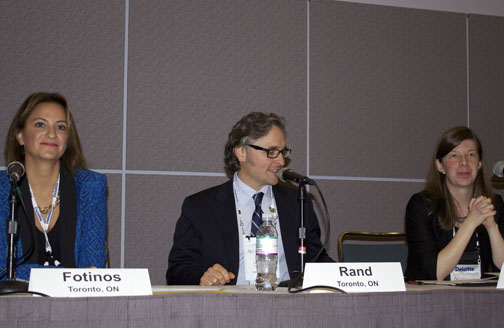LOS ANGELES — Canada’s anti-spam law may not be finalized yet but a panel of in-house counsel and a marketing regulatory lawyer were sounding the alarm bells this week advising if you aren’t prepared, it will have a potentially huge impact on your organization.

“This anti-spam legislation is arguably the toughest in the world,” said Sanjeev Dhawan, senior legal counsel for Hydro One Networks.
During a presentation at the annual Association of Corporate Counsel meeting, Dhawan led a panel discussion on the current state of CASL, which has not yet been finalized despite the fact the federal government’s work on fighting spam began in 2004.
Canada’s Anti-Spam Act passed in December 2010 and was designed to regulate all forms of commercial electronic communication such as e-mail and software downloads.
While the U.K. and Australia have similar anti-spam polices, Dhawan says Canada’s is considered more onerous than that of the United States. He points out there are some principle differences between CASL and the law in the United States — primarily that Canada has put forward an opt-in model while the U.S. law is opt-out.
Companies like the Royal Bank of Canada have been working on how it will respond to CASL for sometime and say it will represent a significant change for businesses.
“Our organization has looked at the effort of a customer to move their mouse over to an empty box and press the button [to opt in]. The numbers suggest if a box is pre-populated with a tick mark where you can simply consent, 76 per cent of people will leave that box, indicating yes, they consent to receive a message. The number is significantly less if you expect someone to go the ‘considerable trouble’ of moving the cursor over the box and ticking it,” said Paul Rand, senior counsel with RBC Capital Markets.
“The point being is there are very real commercial implications for something as simple as expecting an express (or explicit) opt-in.”
At least once express consent has been granted it is valid until it is revoked, said Helen Fotinos, general counsel with St. Louis Franchise Ltd.
“As long as you record the initial date consent was obtained you’re pretty much in the clear until it’s revoked. It becomes trickier in terms of managing it when you’re relying on implied consent in a pre-existing business relationship,” said Fotinos.
The scope of Canada’s law also applies if any element of the commercial electronic message has a purpose to encourage participation in a commercial activity, while in the U.S. it has to be the primary purpose.
While many organizations have been preparing for CASL for years, an ACC Canada poll held earlier in this year showed while some don’t think it will have a huge impact, others are concerned about what it’s requirements will mean from a productivity and cost perspective.
- 26 per cent of Canadian corporate counsel who answered the poll said they believe CASL will have material cost impact on compliance;
- 31 per cent believed the biggest impact it will have is that it will impede corporate thinking;
- 16 per cent believe the legislation won’t have much impact.
“We believe it will have a huge impact and it’s time now to check out your processes,” said Dhawan.
However, since there has been considerable lobbying from many industry groups to amend and water down the legislation over the last few years, those who haven’t fully prepared shouldn’t feel entirely behind the eight ball.
“If you’re coming to the legislation for the first time, it’s probably good news because a lot of the details are really only starting to come into resolution in terms of what it’s actually going to look like so your timing is probably quite good,” said Rand. “Having said that, what an organization has to do you should probably start now.”
Dara Lambie, an associate in the regulatory group at Blake Cassels & Graydon LLP said there is likely to be a “fairly significant period of time” before the legislation will be enforced.
The penalties for CASL are also stiff. If your organization is deemed to have sent non-consented electronic messages it can mean up to $1 million for individuals and $10 million for corporations. Receivers of the messages can also sue for $200 for each individual communication.

 “This anti-spam legislation is arguably the toughest in the world,” said Sanjeev Dhawan, senior legal counsel for Hydro One Networks.
“This anti-spam legislation is arguably the toughest in the world,” said Sanjeev Dhawan, senior legal counsel for Hydro One Networks.